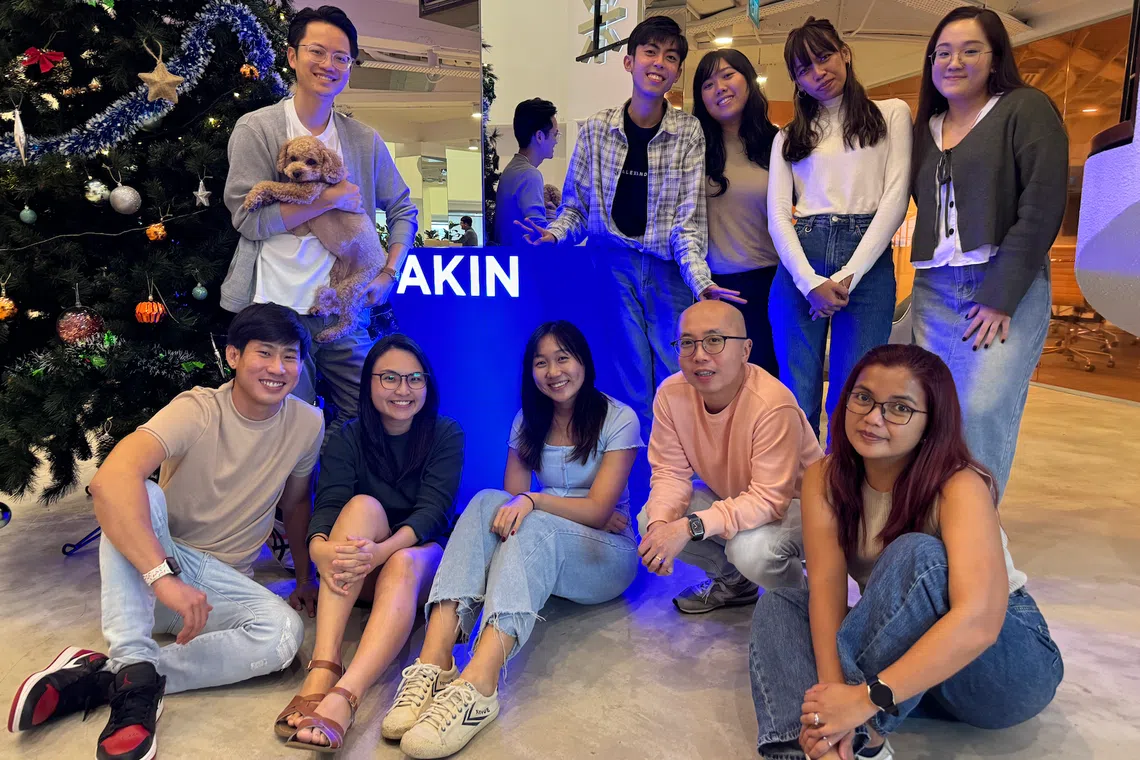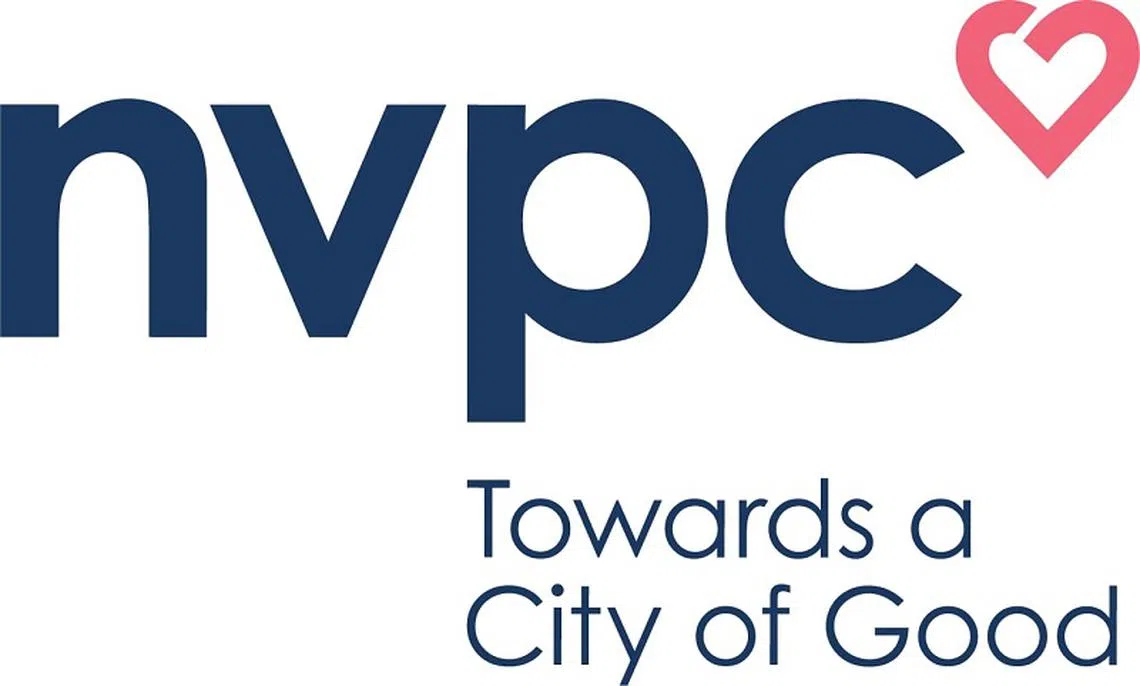Developing a purpose-driven and future-ready business ecosystem
Two organisations recognised as Companies of Good share how, even with limited resources, SMEs in Singapore can make a tangible difference to society
Quest Ventures
VENTURE capital (VC) firm, Quest Ventures, is committed to driving positive change and fostering sustainable development across Asia. To realise its objectives, it supports the efforts of non-profit organisations and charities to address pressing social issues. Areas it focuses on include empowering youth, supporting the elderly, and fostering entrepreneurship.
This year, Quest was named a Champion of Good in the National Volunteer and Philanthropy Centre’s (NVPC) Company of Good (COG) Recognition System, which recognises companies for their commitment to corporate purpose and contributions in the five impact areas of People, Society, Governance, Environment and Economic. It was among 290 companies recognised at the Company of Good Conferment in July this year.
The COG recognition has enabled Quest to communicate its impact goals within the investor community and among its portfolio companies, as well as with its team, says James Tan, its managing partner.
“We firmly believe that responsible investment goes beyond financial returns, encompassing broader objectives such as environmental sustainability and social responsibility.”
The firm has the unique opportunity and responsibility to influence the next generation of entrepreneurs and businesses that create job growth in the region to do so in a holistic fashion, he adds.
Navigate Asia in
a new global order
Get the insights delivered to your inbox.
Quest and its portfolio companies run initiatives to create positive social or environmental impact. For instance, through its Questions With podcast, Quest invites startup founders to share stories of positive impact, such as community-based care solutions by SG Assist and veterinary telehealth by ZumVet.
The firm also recently worked with social enterprise Social Collider to support the Wellbeing Champion Charity Walk by Over the Rainbow, a one-stop hub for youth mental wellness.
To promote responsible and impact investing, Quest collaborated with the Singapore Centre for Social Enterprise (raiSE), Asia’s first VC-backed accelerator for socially impactful enterprises, for its Sustainable Impact Accelerator programme.
Under this programme, entrepreneurs get funding, as well as access to training and networking to develop business opportunities. “These initiatives benefit both investors and startups in tackling important social issues, environmental challenges and development gaps,” Tan says.
For example, food sustainability startup treatsure connects hotels and grocers with surplus food to everyday consumers in Singapore, while software company Tictag provides artificial intelligence (AI) solutions to engage community organisations to train and employ beneficiaries, including the elderly and persons with disabilities.
Tan believes that businesses, including small and medium-sized enterprises (SMEs), should embrace social responsibility. Contributing to community development such as “raising awareness on social causes and environmental protection and conservation”, he adds, will also foster long-term success.
Tan says businesses should recognise the role of technology and digitalisation in sustainable development and improving lives. Technology can accelerate the distribution of goods and services in sectors such as agriculture, healthcare, finance and education, while digitalisation has become an enabler for social services and development work.
For SMEs that are hoping to be purpose-driven, Tan advises them to work towards building something, whether for the community or for-profit, that can scale, replicate, and target large communities. “Businesses have a substantial influence over society and the environment,” he notes.
He acknowledges that “promoting responsible investment and ESG (environmental, social and governance) principles will require time and transition for our team as well as our stakeholders”.
“While the interest and intention to integrate policies is present among entrepreneurs, there is still a need for knowledge transfer, support and capacity-building. But, this ongoing effort reflects the dynamic nature of sustainability practices, underscoring both the progress made and the potential for further development.”

Akin by Techlyon
For digital agency Akin by Techlyon, which designs future-proof, human-centric marketing for a restless digital era, creating more jobs and delivering impactful projects for society is part of its corporate purpose.
Arvin Tang, Akin’s managing director, says that the team’s willingness to volunteer personal time for a social cause led to the company formalising this passion to “consolidate everyone’s interests and establish a structured approach to creating a more significant impact”.
Akin’s approach to creating a holistic impact in areas such as People, Society, Governance, Environment, Economic is based on a balanced model that focuses on external alignment (social and people), internal alignment (governance and environment), and shared impact (economic), Tang notes.
“Our methodology is deeply rooted in the ‘humanisation of brands’, an empathetic approach that helps businesses create value by fostering authentic relationships with their clients,” he adds.
The agency designs initiatives that align with its employees’ personal interests, whether it is education, senior enablement, or animal welfare. It then engages with NPOs or NGOs, offering skill-based volunteering to reduce campaign costs while amplifying impact, as it did in the instance of Tan Tock Seng Hospital’s breast cancer awareness initiative.
Akin also applies the benchmarks set by NVPC’s COG initiative to ensure it continually maintains or improves its impact. “Our belief is simple: when we nurture our talent, the economic and social impact naturally expands as well,” says Tang.
Limited resources have been a constant challenge for Akin. “Initially, we could only manage one to two projects per year due to our smaller team and budget,” he recalls.
To overcome this, it developed a framework to share with local founders of companies such as Oangle, a web development agency, which enabled Akin to sponsor S$60,000 to S$80,000 in professional fees annually across various initiatives.
Earlier this year, Akin undertook a pro bono project for Access SG’s Mobility Access Campaign 2024 by supporting its marketing collaterals and digital touchpoints for the event. Over the past five years, the company has collectively contributed over 1,000 hours, working with partners such as Rice Communications, who have also facilitated volunteer opportunities, such as a stint with Rainbow Centre in July this year.
Tang believes that even with a smaller footprint, SMEs can creatively pool resources like time, talent, and budget to make a meaningful impact. “Beyond contributing to societal benefits, this approach is a powerful approach to engage and inspire our teams, aligning our corporate purpose with a mission that transcends mere profitability.”
Akin’s initiatives have had significant business outcomes, such as strengthening its partnerships, enhancing the team’s sense of purpose, and increasing its brand equity. “These efforts have not only helped us attract and retain talent, but have also led to significant collaboration opportunities, expanding our influence and reach within the community,” Tang notes.
It has also focused on digital transformation to amplify impact across domains such as HR, marketing and operations. Tang says: “For example, we’re developing a generative AI brand-growth tool to help NPOs and NGOs ask the right questions before launching marketing campaigns, ensuring more effective and strategic positioning in the market.”
Being recognised as a Champion of Good this year in the COG Recognition System has helped Akin to connect with like-minded partners, and has introduced it to thought leaders who have further enriched its approach to corporate purpose.
The company plans to have “an increased focus on leveraging AI to foster collaboration. Initiatives like ‘Connecting Causes to the Industry’ will aggregate and link causes with SMEs, promoting impactful collaborations”, Tang says.
He advises SMEs to creatively redefine what change means for their business. “Do not be afraid to innovate and think beyond traditional CSR (corporate social responsibility). Collaborate with others, pool your resources, and focus on making a tangible difference,” he says.
Learn more about the conferred Companies of Good and their impact at thecompanyofgood.sg/conferred-companies-of-good

Decoding Asia newsletter: your guide to navigating Asia in a new global order. Sign up here to get Decoding Asia newsletter. Delivered to your inbox. Free.
Copyright SPH Media. All rights reserved.

